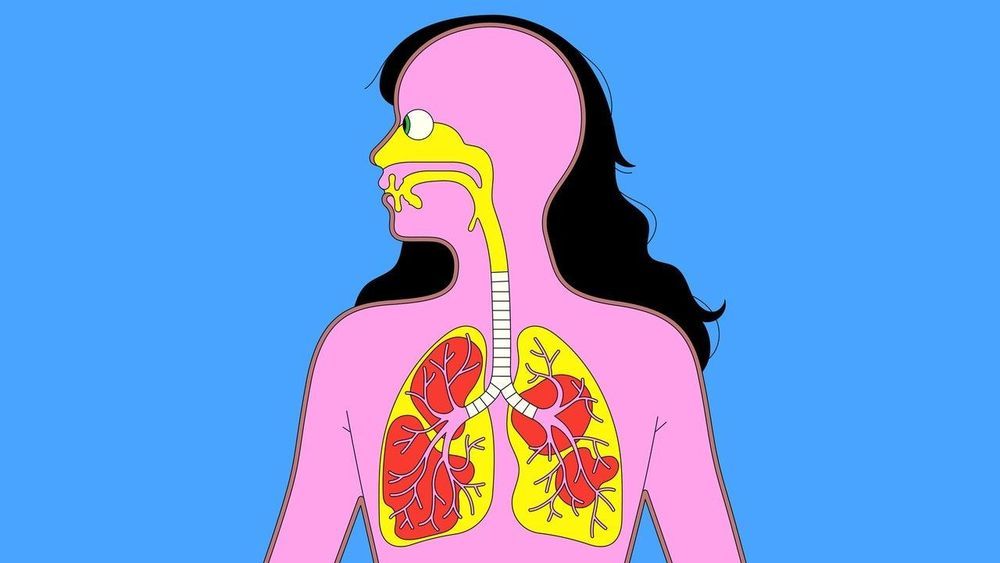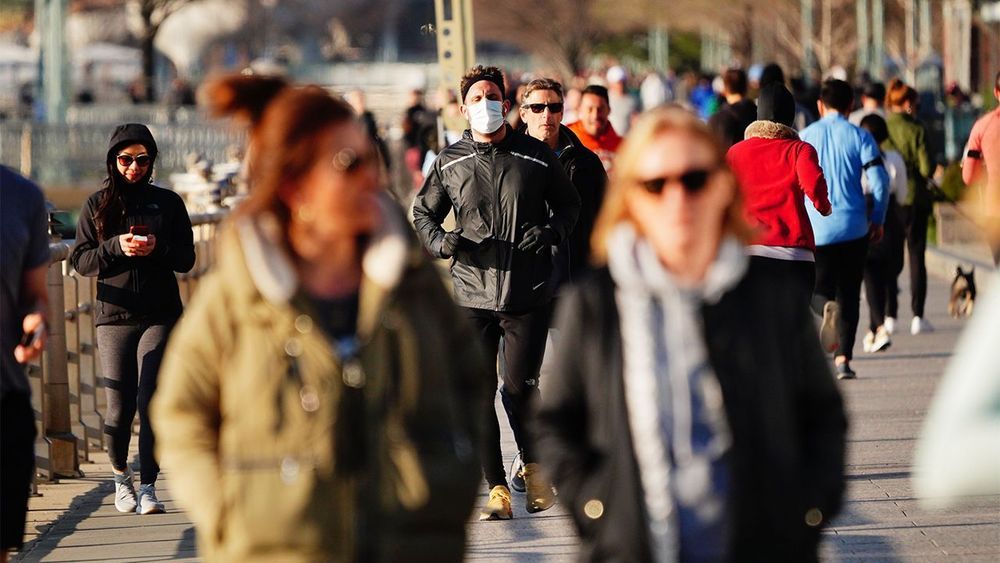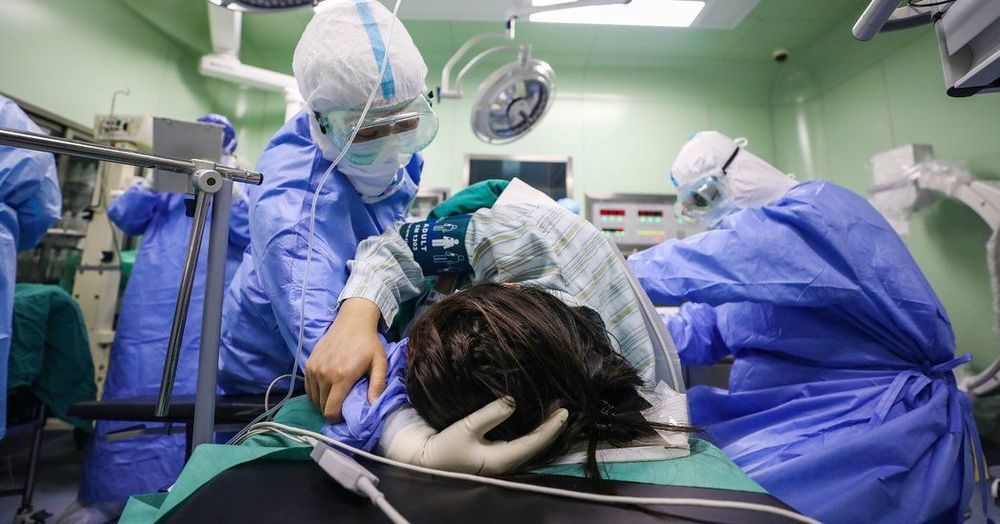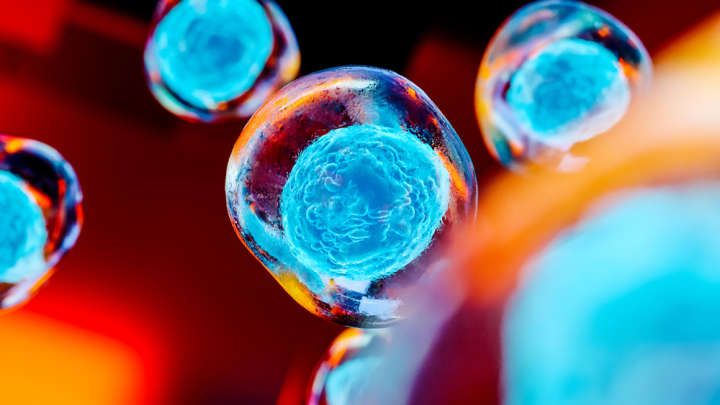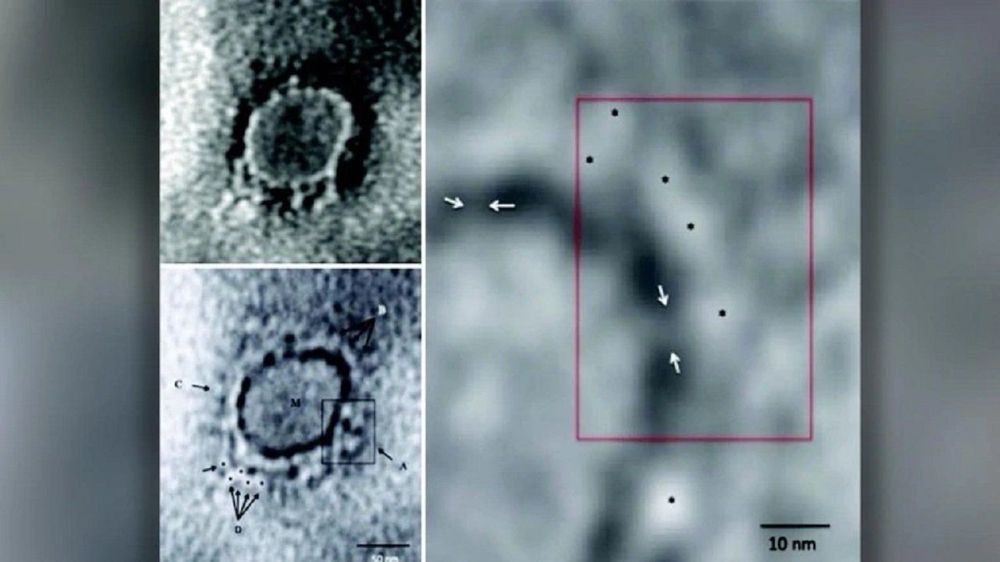Claims that the cure is worse than the disease rely on a false tradeoff between human needs and the economy.
Archive for the ‘biotech/medical’ category: Page 1780
Mar 28, 2020
We’re in the midst of a massive work-from-home experiment. What if it works?
Posted by Kelvin Dafiaghor in category: biotech/medical
In less than a week, many companies have scrambled to create remote-work practices and help their employees set up shop in their dining rooms and living rooms and bedrooms.
As someone who worked from my home office pre-COVID-19 and who is part of a league of professionals who shout about the benefits of remote work from every rooftop I can find, it’s been interesting following this shift.
While much of the news today is scary, I’ve found a silver thread of hope in this pandemic: What if this is our chance to prove remote work, well, works?
Mar 28, 2020
From Bats to Human Lungs, the Evolution of a Coronavirus
Posted by Nicholi Avery in categories: biotech/medical, evolution, genetics
There are endless viruses in our midst, made either of RNA or DNA viruses, which exist in much greater abundance around the planet, are capable of causing systemic diseases that are endemic, latent, and persistent—like the herpes viruses (which includes chicken pox), hepatitis B, and the papilloma viruses that cause cancer. “DNA viruses are the ones that live with us and stay with us,” Denison said. “They’re lifelong.” Retroviruses, like H.I.V., have RNA in their genomes but behave like DNA viruses in the host. RNA viruses, on the other hand, have simpler structures and mutate rapidly. “Viruses mutate quickly, and they can retain advantageous traits,” Epstein told me. “A virus that’s more promiscuous, more generalist, that can inhabit and propagate in lots of other hosts ultimately has a better chance of surviving.” They also tend to cause epidemics—such as measles, Ebola, Zika, and a raft of respiratory infections, including influenza and coronaviruses. Paul Turner, a Rachel Carson professor of ecology and evolutionary biology at Yale University, told me, “They’re the ones that surprise us the most and do the most damage.”
Scientists discovered the coronavirus family in the nineteen-fifties, while peering through early electron microscopes at samples taken from chickens suffering from infectious bronchitis. The coronavirus’s RNA, its genetic code, is swathed in three different kinds of proteins, one of which decorates the virus’s surface with mushroom-like spikes, giving the virus the eponymous appearance of a crown. Scientists found other coronaviruses that caused disease in pigs and cows, and then, in the mid-nineteen-sixties, two more that caused a common cold in people. (Later, widespread screening identified two more human coronaviruses, responsible for colds.) These four common-cold viruses might have come, long ago, from animals, but they are now entirely human viruses, responsible for fifteen to thirty per cent of the seasonal colds in a given year. We are their natural reservoir, just as bats are the natural reservoir for hundreds of other coronaviruses. But, since they did not seem to cause severe disease, they were mostly ignored. In 2003, a conference for nidovirales (the taxonomic order under which coronaviruses fall) was nearly cancelled, due to lack of interest. Then SARS emerged, leaping from bats to civets to people. The conference sold out.
SARS is closely related to the new virus we currently face. Whereas common-cold coronaviruses tend to infect only the upper respiratory tract (mainly the nose and throat), making them highly contagious, SARS primarily infects the lower respiratory system (the lungs), and therefore causes a much more lethal disease, with a fatality rate of approximately ten per cent. (MERS, which emerged in Saudi Arabia, in 2012, and was transmitted from bats to camels to people, also caused severe disease in the lower respiratory system, with a thirty-seven per cent fatality rate.) SARS-CoV-2 behaves like a monstrous mutant hybrid of all the human coronaviruses that came before it. It can infect and replicate throughout our airways. “That’s why it is so bad,” Stanley Perlman, a professor of microbiology and immunology who has been studying coronaviruses for more than three decades, told me. “It has the lower-respiratory severity of SARS and MERS coronaviruses, and the transmissibility of cold coronaviruses.”
Mar 28, 2020
Would everyone wearing face masks help us slow the pandemic?
Posted by Nicholi Avery in categories: biotech/medical, health
Despite messages from some health officials to the contrary, it’s likely that a mask can help protect a healthy wearer from infection, says Benjamin Cowling, an epidemiologist at the University of Hong Kong. Both surgical masks and the more protective N95 respirators have been shown to prevent various respiratory infections in health care workers; there’s been some debate about which of the two is appropriate for different kinds of respiratory infection patient care. “It doesn’t make sense to imagine that … surgical masks are really important for health care workers but then not useful at all for the general public,” Cowling says.
Some argue that masking everyone would slow the spread of COVID-19—but the evidence is spotty.
Mar 28, 2020
Genentech Tests Tocilizumab (Used for Cytokine Release Syndrome in Myeloma CAR T Therapy) in Phase III Trial for Severe COVID-19
Posted by Nicholi Avery in category: biotech/medical
Genentech is working with the FDA to launch a Phase III study comparing tocilizumab (Actemra) vs. standard of care in hospitalized adult patients with severe COVID-19 pneumonia. The trial hopes to open in April 2020 and test 330 patients. The trial endpoints include clinical status, mortality, mechanical ventilation and ICU variables.
Tocilizumab is the first humanized interleukin-6 (IL-6) drug originally approved for rheumatoid arthritis and is now being tested in COVID-19 patients to reduce lung inflammation. The IV version is also approved for patients who have CAR T cell induced cytokine release syndrome (which includes many multiple myeloma patients.). High IL-6 levels can cause damaging inflammation and tocilizumab blocks the effects of IL-6.
According to Randy Cron, MD, PhD, an expert in cytokine release syndrome, some of the severely ill coronavirus patients have lab features of CRS, also sometimes called cytokine storm syndrome (CSS).
Mar 28, 2020
8 strains of the coronavirus are circling the globe. Here’s what clues they’re giving scientists
Posted by Quinn Sena in category: biotech/medical
Scientists sequenced the genomes of eight coronavirus strains circling the globe providing hints about the effectiveness of efforts to halt the virus.
Mar 28, 2020
Shielding the Fetus From the Coronavirus
Posted by Nicholi Avery in category: biotech/medical
Newborns and babies have so far seemed to be largely unaffected by the coronavirus, but three new studies suggest that the virus may reach the fetus in utero.
Even in these studies, the newborns seemed only mildly affected, if at all — which is reassuring, experts said. And the studies are small and inconclusive on whether the virus does truly breach the placenta.
“I don’t look at this and think coronaviruses must cross across the placenta,” said Dr. Carolyn Coyne of the University of Pittsburgh, who studies the placenta as a barrier to viruses. She was not involved in the new work.
Mar 28, 2020
Scientists Have ‘Reset’ The Cellular Age Of Cells Taken From A 114-Year-Old Woman
Posted by Brent Ellman in categories: biotech/medical, genetics, life extension, neuroscience
For the first time, scientists have reprogrammed cells from a 114-year-old woman into induced pluripotent stem cells (iPS cells), a move which they describe as a significant step toward understanding “the underlying mechanisms of extreme longevity and disease resistance.”
iPS cells are adult cells that have been genetically reprogrammed into an embryonic stem cell-like state and are able to give rise to any of the specialized cell types of the body, whether it’s neurons, blood cells, or heart cells.
Until this new project, researchers weren’t even certain whether they could create viable iPS cells from someone so elderly, let alone a supercentenarian. Now they have shown it’s possible to effectively make these aged cells resemble young pluripotent cells, the researchers believe they might have made a step towards the reversal of cellular aging.
Mar 28, 2020
Indian scientists imaged novel Coronavirus under a high-powered microscope
Posted by Roderick Reilly in category: biotech/medical
Using transmission electron microscopy (TEM), scientists from the Indian Council of Medical Research (ICMR), managed to image the novel Coronavirus. The image was taken from the throat swab sample of the first laboratory-confirmed novel Coronavirus patient in India.
Scientists tested a total of seven negative-stained virus particles having features of Coronavirus-like particles from the sample.
The novel Coronavirus, which originated in China late last year, has caused a pandemic across the world.


